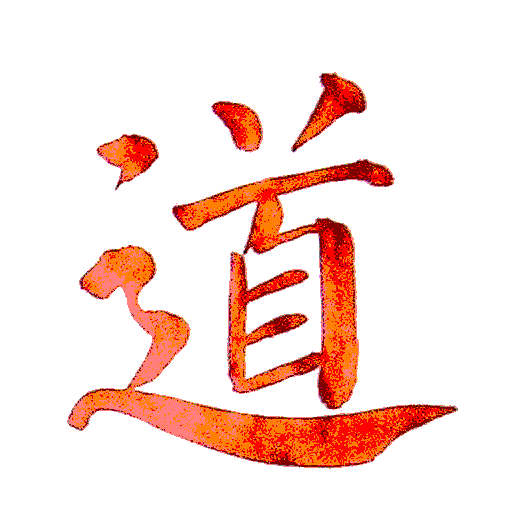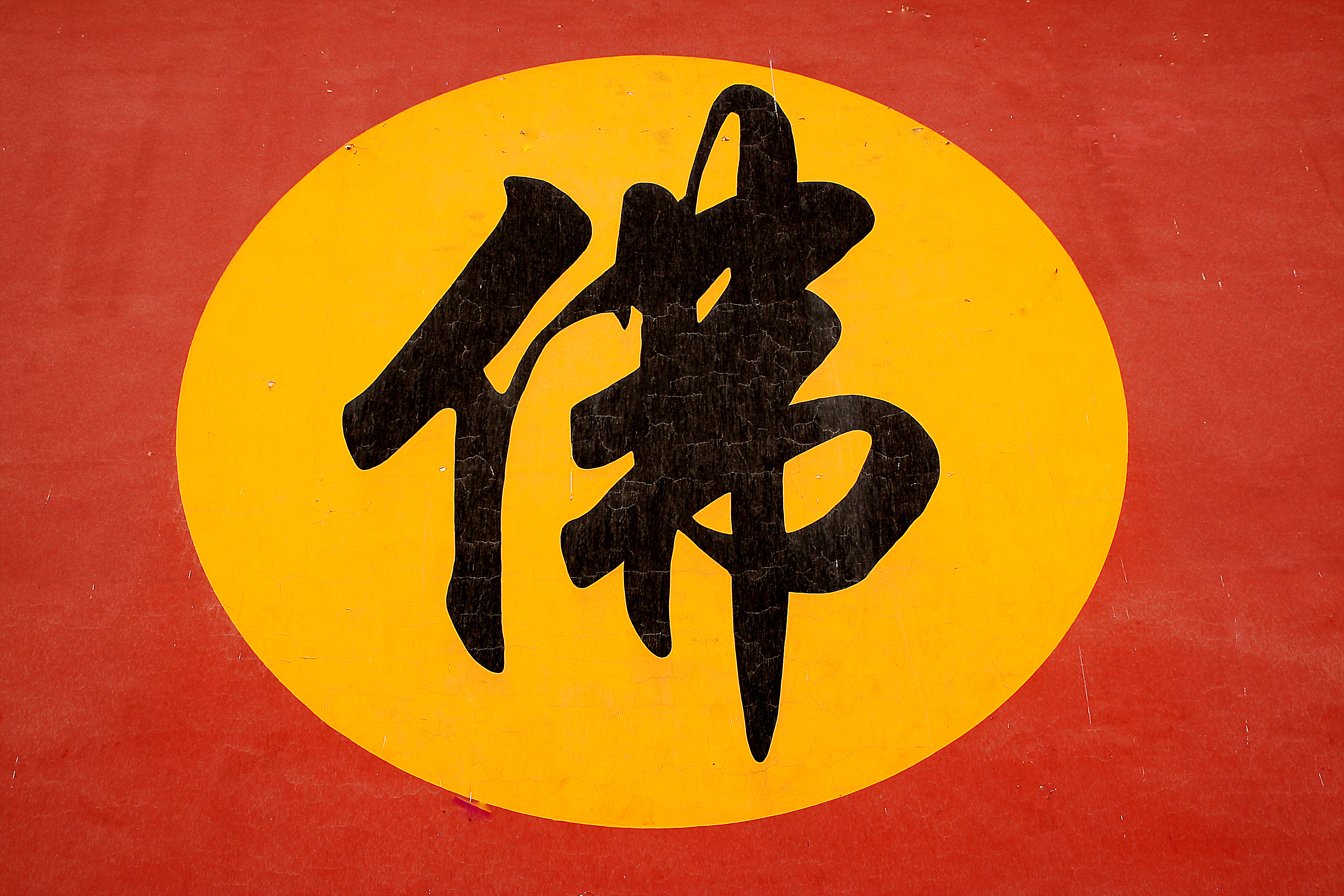|
Tao
The Tao or Dao is the natural way of the universe, primarily as conceived in East Asian philosophy and religion. This seeing of life cannot be grasped as a concept. Rather, it is seen through actual living experience of one's everyday being. The concept is represented by the Chinese character , which has meanings including 'way', 'path', 'road', and sometimes 'doctrine' or 'principle'. In the ''Tao Te Ching'', the ancient philosopher Laozi explains that the Tao is not a name for a thing, but the underlying natural order of the universe whose ultimate essence is difficult to circumscribe because it is non-conceptual yet evident in one's being of aliveness. The Tao is "eternally nameless" and should be distinguished from the countless named things that are considered to be its manifestations, the reality of life before its descriptions of it. Description and uses of the concept The word "Tao" has a variety of meanings in both the ancient and modern Chinese language. Aside fr ... [...More Info...] [...Related Items...] OR: [Wikipedia] [Google] [Baidu] |
Tao Te Ching
The ''Tao Te Ching'' () or ''Laozi'' is a Chinese classic text and foundational work of Taoism traditionally credited to the sage Laozi, though the text's authorship and date of composition and compilation are debated. The oldest excavated portion dates to the late 4th century BC. The ''Tao Te Ching'' is central to both philosophical and religious Taoism, and has been highly influential to Chinese philosophy and Religion in China, religious practice in general. It is generally taken as preceding the ''Zhuangzi (book), Zhuangzi'', the other core Taoist text.. Terminology originating within the text has been reinterpreted and elaborated upon by Legalism (Chinese philosophy), Legalist thinkers, Confucianists, and particularly Chinese Buddhists, introduced to China significantly after the initial solidification of Taoist thought. One of the most translated texts in world literature, the text is well known in the West.. Title In English, the title is commonly rendered ''Tao ... [...More Info...] [...Related Items...] OR: [Wikipedia] [Google] [Baidu] |
Zhuang Zhou
Zhuang Zhou (), commonly known as Zhuangzi (; ; literally "Master Zhuang"; also rendered in the Wade–Giles romanization as Chuang Tzu), was an influential Chinese philosopher who lived around the 4th century BCE during the Warring States period, a period of great development in Chinese philosophy, the Hundred Schools of Thought. He is credited with writing—in part or in whole—a work known by his name, the '' Zhuangzi'', which is one of two foundational texts of Taoism, alongside the ''Tao Te Ching''. Life The only account of the life of Zhuangzi is a brief sketch in chapter 63 of Sima Qian's ''Records of the Grand Historian'', and most of the information it contains seems to have simply been drawn from anecdotes in the ''Zhuangzi'' itself. In Sima's biography, he is described as a minor official from the town of Meng (in modern Anhui) in the state of Song, living in the time of King Hui of Liang and King Xuan of Qi (late fourth century BC). Sima Qian writes that ... [...More Info...] [...Related Items...] OR: [Wikipedia] [Google] [Baidu] |
Confucianism
Confucianism, also known as Ruism or Ru classicism, is a system of thought and behavior originating in ancient China, and is variously described as a tradition, philosophy, Religious Confucianism, religion, theory of government, or way of life. Founded by Confucius in the Hundred Schools of Thought era (c. 500 BCE), Confucianism integrates philosophy, ethics, and social governance, with a core focus on virtue, Harmonious Society, social harmony, and Filial piety, familial responsibility. Confucianism emphasizes virtue through self-cultivation and communal effort. Key virtues include ''Ren (philosophy), ren'' (benevolence), ''Yi (philosophy), yi'' (righteousness), ''Li (Confucianism), li'' (propriety), ''Wisdom, zhi'' (wisdom), and ''Xin (virtue), xin'' (sincerity). These values, deeply tied to the notion of ''tian'' (heaven), present a worldview where human relationships and social order are manifestations of sacred moral principles.. While Confucianism does not emphasize an ... [...More Info...] [...Related Items...] OR: [Wikipedia] [Google] [Baidu] |
De (Chinese)
(; zh, c=德, p=dé), also written as , is a key concept in Chinese philosophy, usually translated "inherent character; inner power; integrity" in Taoism, "moral character; virtue; morality" in Confucianism and other contexts, and "quality; virtue" () or "merit; virtuous deeds" () in Chinese Buddhism. The word Chinese is an ancient word with complexities across several subfields of linguistics: namely in its semantics, orthography, and etymology. Meanings The ''Hanyu Da Zidian'', provides twenty meanings for , translatable as # Rise, go up, climb, ascend. [] # Morals, morality, virtue, personal conduct, moral integrity, honor. [] # Denoting a wise/enlightened person with moral character. [] # Kindness, favor, grace, graciousness. [] # Grateful, gratefulness, thankful, indebted. [] # Benevolent rule, good government, good instruction. [] # Objective regulations/rules. [] # Quality, nature, basic character, characteristi ... [...More Info...] [...Related Items...] OR: [Wikipedia] [Google] [Baidu] |
Qingjing Jing
The ''Qingjing Jing'' () is an anonymous Tang dynasty Taoist classic that combines philosophical themes from the ''Tao Te Ching'' with the logical presentation of Buddhist texts and a literary form reminiscent of the ''Heart Sutra''. It instructs students of the Tao to practice the elimination of desire in order to cultivate spiritual purity and stillness. Title The ''Qingjing jing'' title combines ''qing'' "pure; clean; clear; fresh; cool; distinct; clarified; quiet; peaceful", ''jing'' "still; motionless; static; silent; quiet; peaceful; calm; tranquil", and ''jing'' "(fabric) warp; scripture; canon; classic". The first Chinese character ''qing'' has the "water" radical and a ''qing'' "green" phonetic element. The second character ''jing'' has the "green" radical and a ''zheng'' "struggle" phonetic, and was anciently a variant Chinese character for ''jing'' "clean; pure; complete; only", which has the "water" radical and this ''zheng'' phonetic. ''Qingjing'' could i ... [...More Info...] [...Related Items...] OR: [Wikipedia] [Google] [Baidu] |
Laozi
Laozi (), also romanized as Lao Tzu #Name, among other ways, was a semi-legendary Chinese philosophy, Chinese philosopher and author of the ''Tao Te Ching'' (''Laozi''), one of the foundational texts of Taoism alongside the ''Zhuangzi (book), Zhuangzi''. The name, literally meaning 'Old Master', was likely intended to portray an archaic anonymity that could converse with Confucianism. Modern scholarship generally regards his biographical details as later inventions, and his opus a collaboration. Traditional accounts addend him as , born in the 6th-centuryBC state of Chu during China's Spring and Autumn period (). Serving as the royal archivist for the Zhou dynasty, Zhou court at Wangcheng (Zhou dynasty), Wangcheng (modern Luoyang), he met and impressed Confucius () on one occasion, composing the ''Tao Te Ching'' in a single session before retiring into the western wilderness. A central figure in Chinese culture, Laozi is generally considered the founder of Taoism. He was cla ... [...More Info...] [...Related Items...] OR: [Wikipedia] [Google] [Baidu] |
Wu Wei
''Wu wei'' () is a polysemous, ancient Chinese concept expressing an ideal dao, practice of "inaction", "inexertion" or "effortless action", as a state of personal harmony and free-flowing, spontaneous Improvisation, creative manifestation. In a political context, it also refers to an ideal form or principle of governance or government. ''Wu wei'' appears as an idea as early as the Spring and Autumn period, with early literary examples in the Classic of Poetry. It became an important concept in the Confucian Analects, linking a Confucian ethic of practical morality to a state of being harmonizing intention and action. It would go on to become a central concept in Chinese Legalism, Legalist statecraft and Daoism, in Daoism as a concept emphasizing alignment with the natural Dao in actions and intentions, avoiding force or haste against the natural order. Sinologist Jean François Billeter describes wu-wei as a "state of perfect knowledge (understanding) of the coexistence of the ... [...More Info...] [...Related Items...] OR: [Wikipedia] [Google] [Baidu] |
Chan Buddhism
Chan (; of ), from Sanskrit '' dhyāna'' (meaning " meditation" or "meditative state"), is a Chinese school of Mahāyāna Buddhism. It developed in China from the 6th century CE onwards, becoming especially popular during the Tang and Song dynasties. Chan is the originating tradition of Zen Buddhism (the Japanese pronunciation of the same character, which is the most commonly used English name for the school). Chan Buddhism spread from China south to Vietnam as Thiền and north to Korea as Seon, and, in the 13th century, east to Japan as Japanese Zen. History The historical records required for a complete, accurate account of early Chan history no longer exist. Periodisation The history of Chan in China can be divided into several periods. Zen, as we know it today, is the result of a long history, with many changes and contingent factors. Each period had different types of Zen, some of which remained influential, while others vanished. Andy Ferguson distinguishes thr ... [...More Info...] [...Related Items...] OR: [Wikipedia] [Google] [Baidu] |
Arthur Waley
Arthur David Waley (born Arthur David Schloss, 19 August 188927 June 1966) was an English orientalist and sinologist who achieved both popular and scholarly acclaim for his translations of Chinese and Japanese poetry. Among his honours were appointment as Commander of the Order of the British Empire in 1952, receiving the Queen's Gold Medal for Poetry in 1953, and being invested as a Member of the Order of the Companions of Honour in 1956. Although highly learned, Waley avoided academic posts and most often wrote for a general audience. He chose not to be a specialist but to translate a wide and personal range of classical literature. Starting in the 1910s and continuing steadily almost until his death in 1966, these translations started with poetry, such as ''A Hundred and Seventy Chinese Poems'' (1918) and ''Japanese Poetry: The Uta'' (1919), then an equally wide range of novels, such as ''The Tale of Genji'' (1925–26), an 11th-century Japanese work, and ''Monkey'', fr ... [...More Info...] [...Related Items...] OR: [Wikipedia] [Google] [Baidu] |
Yin And Yang
Originating in Chinese philosophy, yin and yang (, ), also yinyang or yin-yang, is the concept of opposite cosmic principles or forces that interact, interconnect, and perpetuate each other. Yin and yang can be thought of as complementary and at the same time opposing forces that interact to form a dynamic system in which the whole is greater than the assembled parts and the parts are as important for the cohesion of the whole. In Chinese cosmology, the universe creates itself out of a primary chaos of primordial qi or material energy, organized into the cycles of yin and yang, force and motion leading to form and matter. "Yin" is retractive, passive and contractive in nature, while "yang" is repelling, active and expansive in principle; this dichotomy in some form, is seen in all things in nature—patterns of change and difference. For example, biological, psychological and seasonal cycles, the historical evolution of landscapes over days, weeks, years to eons. The origin ... [...More Info...] [...Related Items...] OR: [Wikipedia] [Google] [Baidu] |
Exegesis
Exegesis ( ; from the Ancient Greek, Greek , from , "to lead out") is a critical explanation or interpretation (philosophy), interpretation of a text. The term is traditionally applied to the interpretation of Bible, Biblical works. In modern usage, exegesis can involve critical interpretations of virtually any text, including not just religious texts but also philosophy, literature, or virtually any other genre of writing. The phrase ''Biblical exegesis'' can be used to distinguish studies of the Bible from other critical textual explanations. Textual criticism investigates the history and origins of the text, but exegesis may include the study of the historical and cultural backgrounds of the author, text, and original audience. Other analyses include classification of the type of literary genres presented in the text and analysis of grammar, grammatical and syntax, syntactical features in the text itself. Usage One who practices exegesis is called an ''exegete'' (; from Greek ... [...More Info...] [...Related Items...] OR: [Wikipedia] [Google] [Baidu] |





